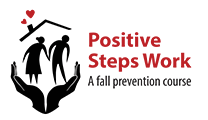
Health Care Professionals
Current topics
Diseases of Public Health Significance (DoPHS)
Diseases of Public Health Significance
Diseases of Public Health Significance notification form
Measles
Public Health Ontario Guidance
| Health Department communications and fact sheets | |||||||||||||||||||||
|
Fact sheets
FAX abouts
News releases |
|||||||||||||||||||||
|
Clinical presentation |
|||||||||||||||||||||
|
Clinical signs and symptoms of measles are:
Measles is characterized by a prodrome of fever (greater than or equal to 38.3 degrees Celsius oral), cough, coryza (runny nose) and conjunctivitis which usually begin 10 to 12 days after exposure (range seven to 21 days). Koplik spots (tiny blue-white spots on the buccal mucosa) may also be present during the prodromal period. Three to seven days after the onset of prodromal symptoms, a red maculopapular, non-itchy rash appears on the face and then spreads downward to the neck, trunk, arms, legs and feet. The rash usually appears about 14 days after exposure (range seven to 21 days). Individuals who have received one or two doses of measles-containing vaccine may develop an infection with milder symptoms. Unvaccinated or individuals who have not had two doses of measles-containing vaccine are at increased risk of measles. The following individuals are at increased risk of more severe measles disease:
|
|||||||||||||||||||||
|
Measles diagnostic testing |
|||||||||||||||||||||
|
Measles PCR testing Measles serology testing Contact Durham Region Health Department prior to collecting specimens. Courier service will be arranged to facilitate timely shipping and testing of specimens.
Diagnostic laboratory tests for detection of measles
|
|||||||||||||||||||||
| Measles post-exposure prophylaxis (PEP) | |||||||||||||||||||||
|
MMR vaccine OR immune globulin (Ig) may be used for measles post-exposure prophylaxis in susceptible individuals. MMR vaccine Susceptible immunocompetent contacts six months of age and older who have no contraindications should be given MMR vaccine within 72 hours of the exposure. Immune Globulin (IMIg and IVIg) IMIg/IVIg, if administered within six days of exposure, may provide some protection or modify the clinical course of disease among susceptible contacts. As the efficacy of Ig prophylaxis decreases with time from exposure, prompt administration of Ig is encouraged, if needed. Ig should be reserved for susceptible contacts at higher risk of disease severity. Susceptible high-risk contacts include:
Canadian Immunization Guide Measles PEP Table Individuals who receive an Ig as PEP should continue to monitor for signs and symptoms of measles for 28 days after the last exposure.
VaccineIf MMR vaccine is given prior to 12 months of age as PEP, two additional doses of measles-containing vaccine must be administered after the child is 12 months of age to provide long lasting immunity to measles. When MMR vaccine is offered 72 hours after exposure, it will not be as effective for PEP, however it provides an opportunity to update immunizations, starting and completing a two-dose series that will provide long-term protection from any subsequent measles exposures. MMR vaccine: Other considerations
|
|||||||||||||||||||||
| IPAC recommendations for measles in health care settings | |||||||||||||||||||||
|
|||||||||||||||||||||
| Additional resources | |||||||||||||||||||||
Respiratory illnesses
| Avian influenza or highly pathogenic avian influenza (HPAI) | ||||||||
| COVID-19 | ||||||||
|
Visit durham.ca/COVID-19 for the latest information from Durham Region Health Department.
|
||||||||
| Influenza (Flu) | ||||||||
|
||||||||
| Respiratory Syncytial Virus (RSV) | ||||||||
|
Alerts and updates
FAX abouts
Durham Region Health Department disseminates timely updates to health care providers regarding current and emerging public health topics through our FAX about communications.
Subscribe to our FAX about email distribution list.
IPAC Hub Spotlight Durham Region
An e-newsletter distributed electronically to long-term care homes, retirement homes and congregate living settings in Durham Region. Our newsletter is published and distributed by Durham Region Health Department, Health Protection Division in partnership with Lakeridge Health IPAC Hub (Durham IPAC Hub).
Check out the latest edition of the e-newsletter
How healthy are Durham Region residents?
We use health indicators to monitor the health status of local residents. Health data for Durham Region comes from many sources, such as the Census, surveys and hospitals.
Check out the latest Durham health statistics
Get the latest, local statistics on opioids in Durham Region including:
- Weekly number of suspected opioid overdose calls received by Region of Durham Paramedic Services
- Monthly number of confirmed opioid overdose emergency department visits
- Annual number of opioid-related deaths
Durham Region Opioid Information System
Infectious disease surveillance
Durham Region outbreak status report Durham Region respiratory virus data tracker
Forms
| Deceased management |
|
Apply for Health Department approval to manage a corpse with a specific communicable disease Learn more about managing corpses with specific communicable diseases |
| Dental program applications |
| Naloxone distribution |
|
Ontario Naloxone Program (ONP) Eligible community agencies are now able to order naloxone kits from the Health Department to distribute to:
How to become a registered naloxone distribution site To determine eligibility please complete the ONP eligibility application. Once you complete this application, a representative from Durham Region Health Department will contact you. |
| Order |
Publicly funded sexually transmitted infection (STI) medicationsVaccinesOrder seasonal respiratory vaccines The forms below are for print purposes only.
Annual fridge inspectionsAnnual fridge inspections typically occur between June and August. You will be contacted by a Durham Region Health Department public health nurse to schedule an inspection time. If you have obtained a new fridge, please contact us at 905-668-7711 extension 3063 to arrange a fridge inspection prior to storing publicly funded vaccines. You can also contact us if you have questions or concerns about your upcoming fridge inspection. Please note: Providers are responsible for obtaining their own thermometers and replacement thermometers. See our choosing a temperature monitoring device resource. Order print resourcesOur online resource order form provides a range of print materials regarding a variety of relevant health topics. Our resources can be distributed to your patients, and are intended to assist you in your daily practice while supporting the health of your patients. |
| Referral |
| Reporting |
|
Tools and guidance documents
| Alcohol, cannabis, opioids and smoking | |||||||||||||||||||||||||||||||||||||||||||||||||||||||||||||||||||||
|
Alcohol
Canada's Guidance on Alcohol and Health
Cannabis
Opioids
Patch for Patch Program
Smoking
|
|||||||||||||||||||||||||||||||||||||||||||||||||||||||||||||||||||||
| Concussions | |||||||||||||||||||||||||||||||||||||||||||||||||||||||||||||||||||||
|
Determining when its safe for someone diagnosed with a concussion to resume regular activities is particularly important, whether those activities are heavily sport-related or simply returning to school or work. Rowan’s LawRowan’s Law provides a framework for concussion prevention, detection, and management within amateur competitive sport. The final phase of implementation of Rowan’s Law includes the requirements for removal-from-sport and return-to-sport protocols. In addition, the Ministry of Education have also made amendments to the Education Act, such that policies on concussions are consistent with Rowan’s Law. What does this mean for health care providers? Under Rowan’s Law, physicians and nurse practitioners are the only health care providers that can medically assess and provide medical clearance for an athlete to return to unrestricted athletic participation. Based on this requirement you may see an uptick in patients seeking concussion assessments.
Resources to assist you
|
|||||||||||||||||||||||||||||||||||||||||||||||||||||||||||||||||||||
| Dental and oral health | |||||||||||||||||||||||||||||||||||||||||||||||||||||||||||||||||||||
|
Ontario Works Dental Benefits - Adult Ontario Works recipients |
|||||||||||||||||||||||||||||||||||||||||||||||||||||||||||||||||||||
| Illness, infection and disease | |||||||||||||||||||||||||||||||||||||||||||||||||||||||||||||||||||||
|
Spore testing (biological monitoring) Diseases of public health significance Diseases of public health significance notification form
|
|||||||||||||||||||||||||||||||||||||||||||||||||||||||||||||||||||||
| Immunization, vaccines and AEFI | |||||||||||||||||||||||||||||||||||||||||||||||||||||||||||||||||||||
COVID-19
Influenza (Flu)
Adverse event following immunization (AEFI)
|
|||||||||||||||||||||||||||||||||||||||||||||||||||||||||||||||||||||
| Perinatal mental health | |||||||||||||||||||||||||||||||||||||||||||||||||||||||||||||||||||||
| Potassium iodide (KI) tablets | |||||||||||||||||||||||||||||||||||||||||||||||||||||||||||||||||||||
| Pregnancy, babies and toddlers | |||||||||||||||||||||||||||||||||||||||||||||||||||||||||||||||||||||
|
|||||||||||||||||||||||||||||||||||||||||||||||||||||||||||||||||||||
| Rabies post-exposure prophylaxis | |||||||||||||||||||||||||||||||||||||||||||||||||||||||||||||||||||||
| Sexual health and sexually transmitted infections | |||||||||||||||||||||||||||||||||||||||||||||||||||||||||||||||||||||
|
Learning and educational opportunities
| Fall prevention |

|
| Infection control |
| Stigma and substance use |
|
Understanding Stigma – CAMH course Trauma-Informed Care (TIC) e-Learning Series |
| Vaccine storage and handling |
|
Vaccine Storage and Handling Link N' Learn Module To ensure the safety of publicly funded vaccines, the Durham Region Health Department Link N' Learn module must be completed by all new and/or coverage staff and couriers who monitor, administer, or transport vaccines. Access the Vaccine Storage and Handling Link N' Learn Module For questions regarding vaccine storage and handling, please contact our Vaccine Storage and Handling line at 905-668-7711, extension 3063. |
Contact Us




